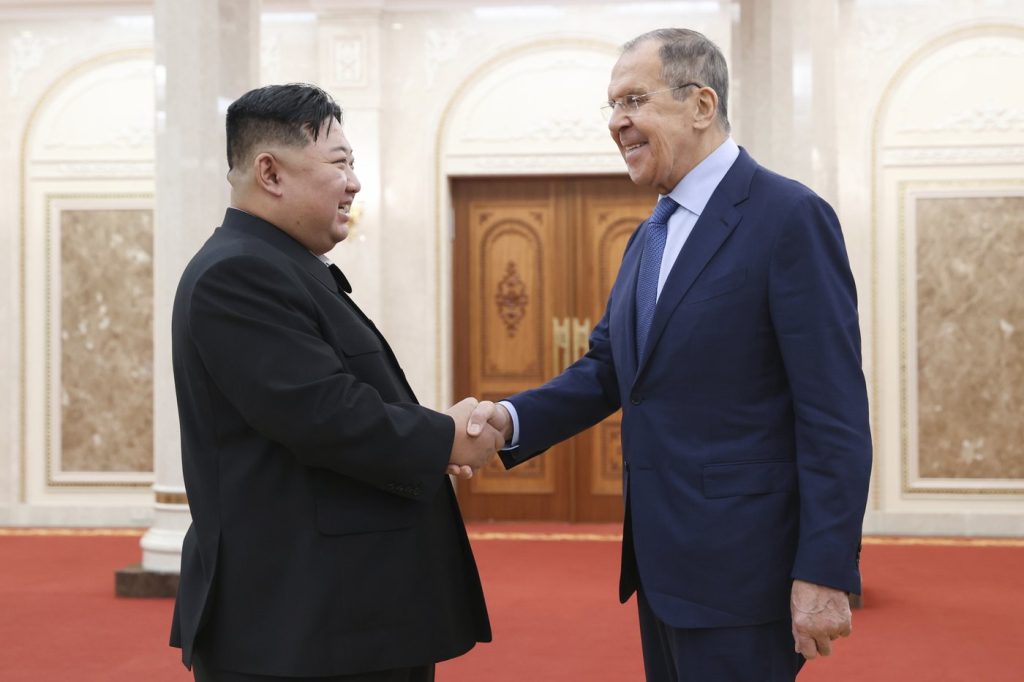SEOUL, South Korea (AP) — Russian Foreign Minister Sergey Lavrov is set to embark on a three-day visit to North Korea starting this Friday. This visit further highlights the strengthening ties between Russia and North Korea amid ongoing geopolitical tensions, notably the war in Ukraine, as reported by North Korean state media.
According to the Korean Central News Agency, Lavrov's trip was initiated by an invitation from North Korea’s Foreign Ministry; however, there are no immediate details available regarding potential meetings with North Korean leader Kim Jong Un. This visit follows a significant trip by Sergei Shoigu, Russia's top security official, in June, during which he met Kim in Pyongyang. Shoigu's visit concluded with the announcement that North Korea would send a contingent of military construction workers and deminers to Russia's Kursk region to assist in rebuilding efforts following the conflict.
South Korea's intelligence agency has indicated that this dispatch of North Korean workers could occur as soon as July or August. Recent assessments suggest that Kim has already committed thousands of combat troops and extensive military resources to support Russia's military operations against Ukraine. These supplies include artillery and ballistic missiles. Lavrov's journey occurs while he is en route to Malaysia for meetings with the 10-member Association of Southeast Asian Nations, leading some analysts to speculate about the possibility of organizing a visit to Russia by Kim Jong Un.
Lavrov's last trip to North Korea took place in June 2024, when he accompanied President Vladimir Putin to a summit with Kim. The outcome of that meeting was a strategic partnership agreement pledging mutual assistance in the event of any aggression against either nation.
Until recently, Pyongyang and Moscow had both maintained that North Korean forces were not involved in the Ukraine conflict. This stance changed in April when both nations acknowledged the involvement of North Korean soldiers in combat alongside Russian forces to counter a Ukrainian incursion into Russia's Kursk border area. Although the exact number of North Korean troops deployed in Russia remains undisclosed, estimates from South Korean, U.S., and Ukrainian officials suggest that approximately 10,000 to 12,000 North Korean soldiers were sent to Russia in the fall of the previous year, with an additional deployment of 3,000 to 4,000 troops occurring earlier in 2024.
Concerns have been raised by officials from the U.S., South Korea, and Japan regarding the potential implications of Kim Jong Un seeking significant technology transfers from Russia in exchange for military support. Such transfers could notably enhance the capabilities of North Korea’s military nuclear program, thereby escalating regional security challenges.
Meanwhile, the continuing collaboration between Russia and North Korea amidst international sanctions and geopolitical tensions underscores a period of increasing cooperation between the two nations, as they navigate their respective challenges on the global stage.










